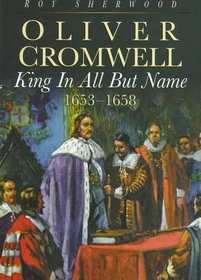Search -
Oliver Cromwell : King in All but Name, 1653-1658
Oliver Cromwell King in All but Name 16531658
Author:
Oliver Cromwell as Lord Protector is frequently described as being a King in all but name without much in the way of a coherent, detailed explanation of precisely what this means. This book aims to correct that omission by demonstrating some of the ways in which Cromwell's rule constituted a monarchical regime in the generally accepted sense of ... more »
Author:
Oliver Cromwell as Lord Protector is frequently described as being a King in all but name without much in the way of a coherent, detailed explanation of precisely what this means. This book aims to correct that omission by demonstrating some of the ways in which Cromwell's rule constituted a monarchical regime in the generally accepted sense of ... more »
ISBN-13: 9780312176594
ISBN-10: 0312176597
Publication Date: 10/15/1997
Pages: 218
Rating: ?
ISBN-10: 0312176597
Publication Date: 10/15/1997
Pages: 218
Rating: ?
0 stars, based on 0 rating
Genres:
- Biographies & Memoirs >> Historical >> Europe >> Great Britain >> Cromwell, Oliver
- Biographies & Memoirs >> Historical >> Europe >> Great Britain >> General
- Biographies & Memoirs >> Historical >> General
- History >> Europe >> England >> General
- History >> Europe >> England >> Tudor & Stuart




